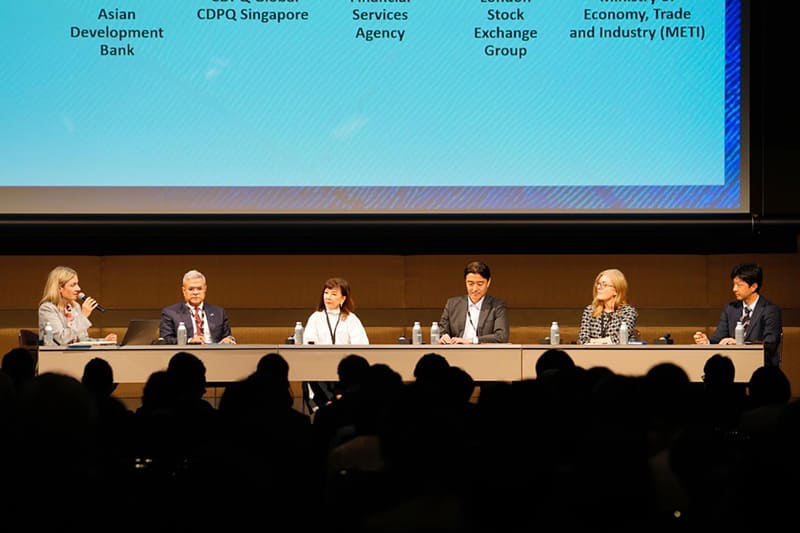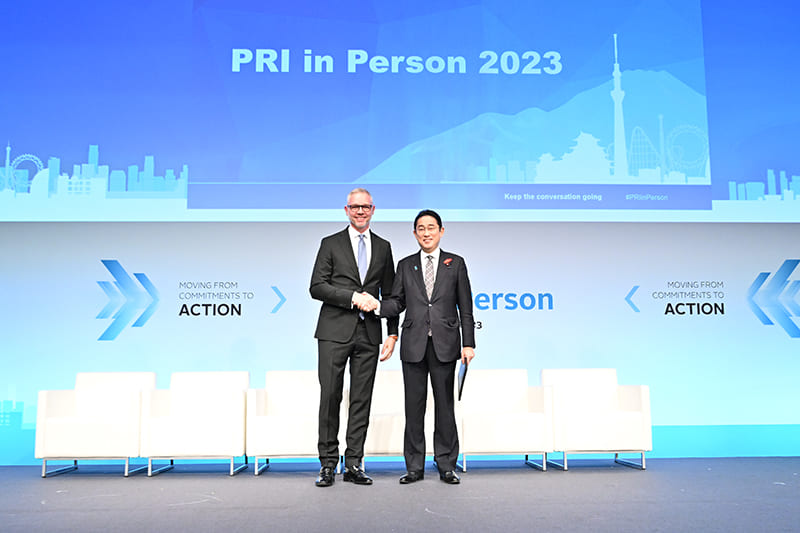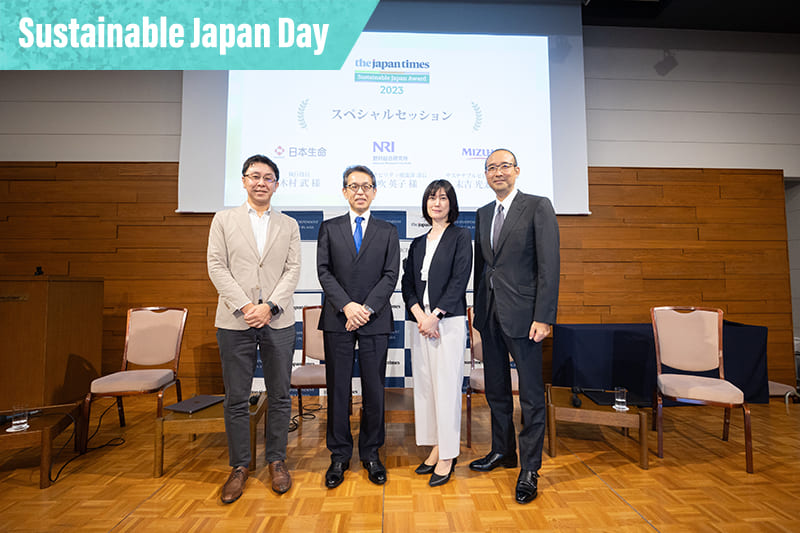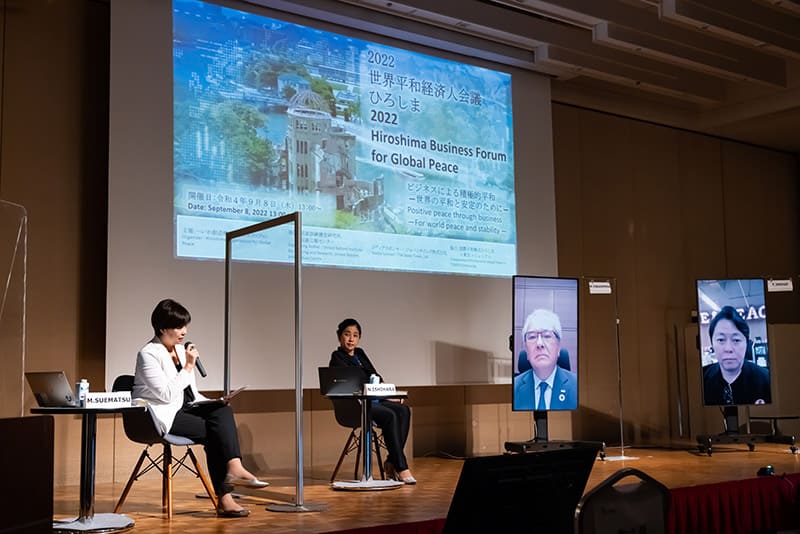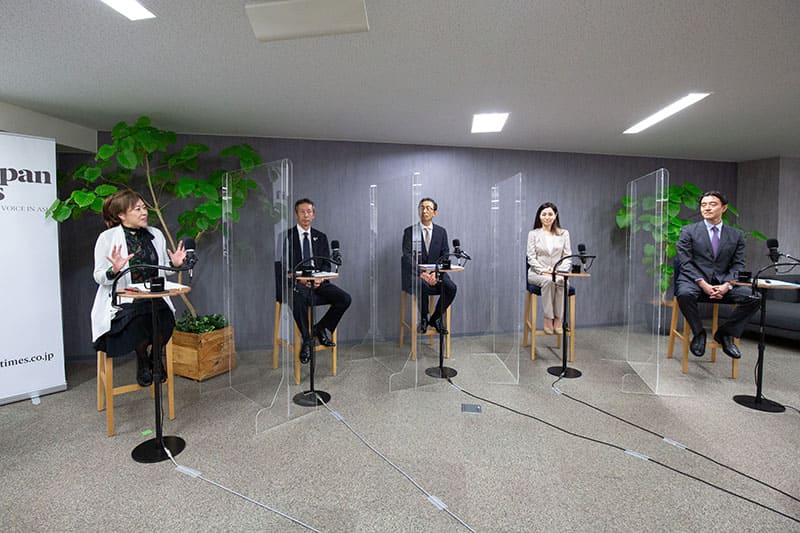June 17, 2022
Symposium examines financial pathways to net-zero future
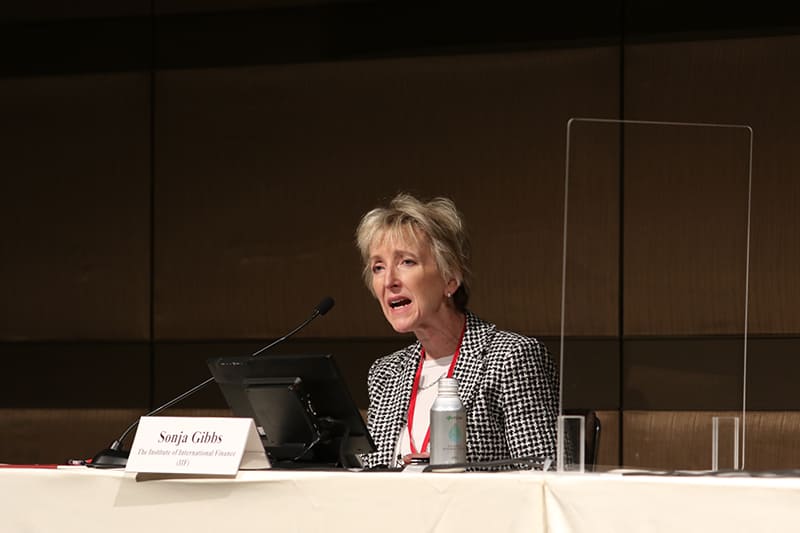
A symposium sponsored by the Financial Services Agency (FSA) on May 26 invited finance and industry experts both in Japan and from abroad to give their views on the financial sector’s role in creating pathways toward a net-zero future.
After the opening remarks by Shunichi Suzuki, the minister of state for financial services, came a prerecorded dialogue on the state of sustainable finance between Mark Carney, the U.N. special envoy for climate action and finance and chair of the Glasgow Financial Alliance for Net Zero (GFANZ), and Hiromichi Mizuno, the U.N. special envoy for innovative finance and sustainable investments.
Mizuno observed that momentum is building within sustainable finance as evidenced by COP26, the 2021 U.N. climate conference. Carney agreed, saying, “The big news at COP26 was the scale and enthusiasm of commitment and involvement from the private sector.” He estimated that in 2020 there were only around 600 companies with science-based net-zero commitments. “Now there are over 7,000,” he exclaimed.
Furthermore, GFANZ has been instrumental in getting financial institutions and asset managers to commit $130 trillion in capital toward the transformation to net-zero. “And these are not just far-off 2050 targets,” Carney continued. “They have short-term targets, 2030 targets, and annual reporting of all emissions of portfolio companies.”
The Japanese finance sector’s early adoption of the framework created by the Task Force on Climate-Related Financial Disclosures has helped to tip the scales in favor of transition finance globally. Not only are other countries such as the United States explicitly basing their climate disclosures on TCFD, but the guidelines are expected to become mandatory in the future. Japan’s continued leadership will be paramount for global decarbonization.
Scramble for energy

What high energy prices due to the Ukraine crisis have revealed is not necessarily that the transition is being pushed too strongly. Carney believes that the scramble for energy by Europe and Japan could be demonstrating the unreliability of fossil fuel-based economies. “Countries are realizing that the relationship between energy security and sustainability is virtually entire,” he said. In other words, the transition away from dependency on fossil fuels cannot happen quickly enough.
Of course, investment into more green solutions like solar and wind are welcome. However, both Mizuno and Carney maintained that renewables are “the easy part” of decarbonization, and that the transition is not identical everywhere. What is needed are different base cases and road maps for each sector. Transitional fuels such as natural gas will be required in the near term. Over the long term, Carney said, “The case for clean energy is overwhelming.”
Mizuno estimated that only about 10% of the $130 trillion GFANZ figure is allocated to developing countries — those most in need of transitioning. To combat this, financial institutions in Japan are rolling out “country packages” for nations like Vietnam and Indonesia. The packages include both a road map toward sustainability as well as the financial backing to help realize it.
Challenges, chances in Asia
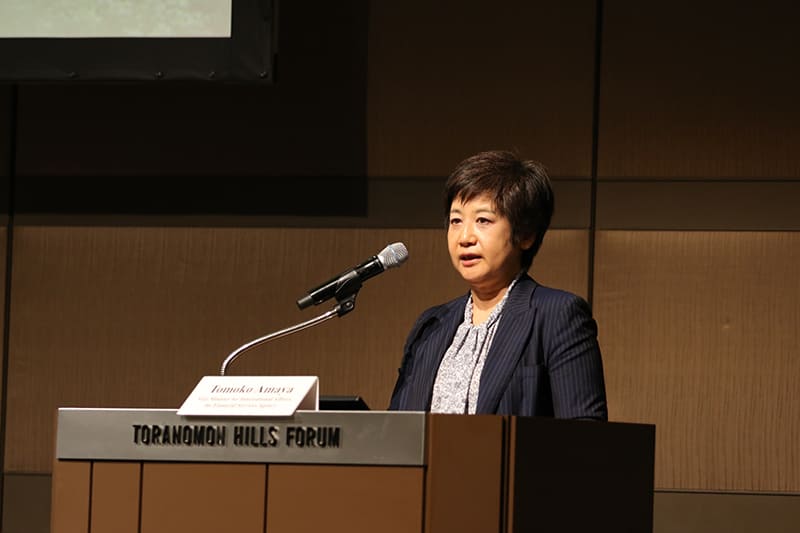
“The battle for climate change will be won or lost in Asia,” declared the symposium’s keynote speaker, Darian McBain, the chief sustainability officer for the Monetary Authority of Singapore. McBain spoke about the need for rapid decarbonization in Asia, where reliance on fossil fuels is still high. Asia is responsible for more than 50% of global energy consumption and nearly half of global emissions. Furthermore, the World Bank estimates that demand for fossil fuels will double in the region by 2030.
The managing director of the Institute of Energy Economics, Yukari Yamashita, added nuance by cautioning against attempts to ban financing for producers of oil and gas too rapidly. “Doing so can backfire,” she said, because of energy’s strong relationship to food supply and domestic economies, plus concern over causing fossil fuel assets to become stranded. Finding ways to accelerate the transition in Asia effectively while considering the unique social and economic conditions in developing countries is an extremely difficult balancing act.
Work remains to be done in Japan as well. The Transition Pathway Initiative (TPI), a free online tool for investors, is used to assess companies’ transition initiatives, such as alignment with their publicly stated goals on carbon neutrality. Unfortunately, of the 46 Japanese companies currently assessed, only a quarter are aligned with their long-term 2050 net-zero goals, and even fewer with their short- and medium-term goals.
But along with these challenges come exciting opportunities. One of the panelists, Adam Matthews, the chair of the TPI, said companies that can clearly show alignment with their goals will attract new capital inflows from increasingly green-conscious investors and pension funds.
There are also opportunities for more renewables and development of innovative technology. Yamashita explained that, as an energy importer, Japan is well-positioned to experience outsized growth in renewables due to increased focus on energy security. Carbon capture and storage solutions, innovative nuclear reactor technologies and hydrogen projects are all of interest to investors seeking to support transition.
What is clear is that effective transition finance on the part of financial institutions, asset managers and even individual investors will play a vital role in the fight against climate change going forward


